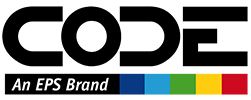NEWS RELEASE
FOR IMMEDIATE RELEASE
MEDIA CONTACT:
Iain Hopwood, Media Manager
(832) 717 4445 ext 1
ihopwood@codemag.com
CODE Framework Service Features for .NET Core RTM
Houston, TX – June 20, 2019… EPS Software Corp., CODE, and Markus Egger Inc., are proud to announce the general availability of CODE Framework Services Features for .NET Core.
We are proud to announce the first public release of CODE Framework’s .NET Core Service Components. This set of components allows developers to create and consume (Micro) Services in .NET Core. These features provide a continuation of CODE Framework’s Service Features that have now been maintained for well over a decade (and closer to two decades, when counting continued support for CODE Framework’s predecessor product). Using these new features, existing services, as well as new services, can be deployed on .NET Core, and as such, include Windows and Linux deployment targets. This set of features also explicitly supports containerization, Docker, and related features, such as Kubernetes.
All CODE Framework Services Features released as part of this major release, either target .NET Standard, or .NET Core. Services created using these new features are mainly meant to be used in .NET Core environments, but they are also backwards compatible with the full .NET Framework, allowing for maximum code reuse.
All services created in this way are syntax compatible to services created with previous versions of CODE Framework, thus providing unprecedented backwards compatibility and longevity for Services and Micro Services. With CODE Framework’s recently added support for Milos Solution Platform components (the predecessor product of CODE Framework), which brings many Milos components to the world of .NET Core and .NET Standard, service code going back 20 years and the early days of “.NET 1.0 Web Services” can still be used and maintained on a modern platform.
CODE Framework Service features are available as Open Source software under the MIT license. Source code can be found on GitHub (https://github.com/codeframework). The actual components are provided as NuGet packages. Both source code and NuGet packages are free of charge.
About CODE Framework
The CODE Framework is a free and open source development framework from Markus Egger (long-time Microsoft MVP and RD) and CODE Magazine. It consists of various components and tools that help developers with common aspects of business application development, such as simplified Micro Service development with various clients, WPF development, data access, etc. The main focus of this framework is to enable productive, flexible, and highly maintainable business application development. The CODE Framework is the perfect way to architect business applications to be stable for future technologies (e.g. .NET Core).
For a complete list of features, check out http://www.codeframework.io
About CODE Magazine and EPS Software
Founded in 1993 by Markus Egger, EPS Software Corp, has become one of the world’s premier providers in high-tech consulting and custom software services. Markus Egger, founder and president of EPS/ CODE, is the Microsoft Regional Director (RD) for the US Gulf Coast Region. EPS Software also publishes CODE Magazine (the Leading Independent Developer Publication). CODE Magazines’ focus is technologies such as .NET, Cloud, Visual Studio, JavaScript, IOS, and Android Development. In addition, CODE Magazine owns CODE Consulting, CODE Training, and other CODE divisions.
CODE Magazine and its affiliates are registered trademarks of EPS Software. All other product or company names mentioned herein are trademarks or registered trademarks of their respective owners. This new release contains forward-looking statements, including those regarding future software releases. These statements are based on current expectations, forecasts, and assumptions involving risks and uncertainties that could cause actual outcomes to differ. CODE Magazine disclaims any intention or obligation to update or revise any forward-looking statement, whether as a result of new information, future events, or otherwise.

